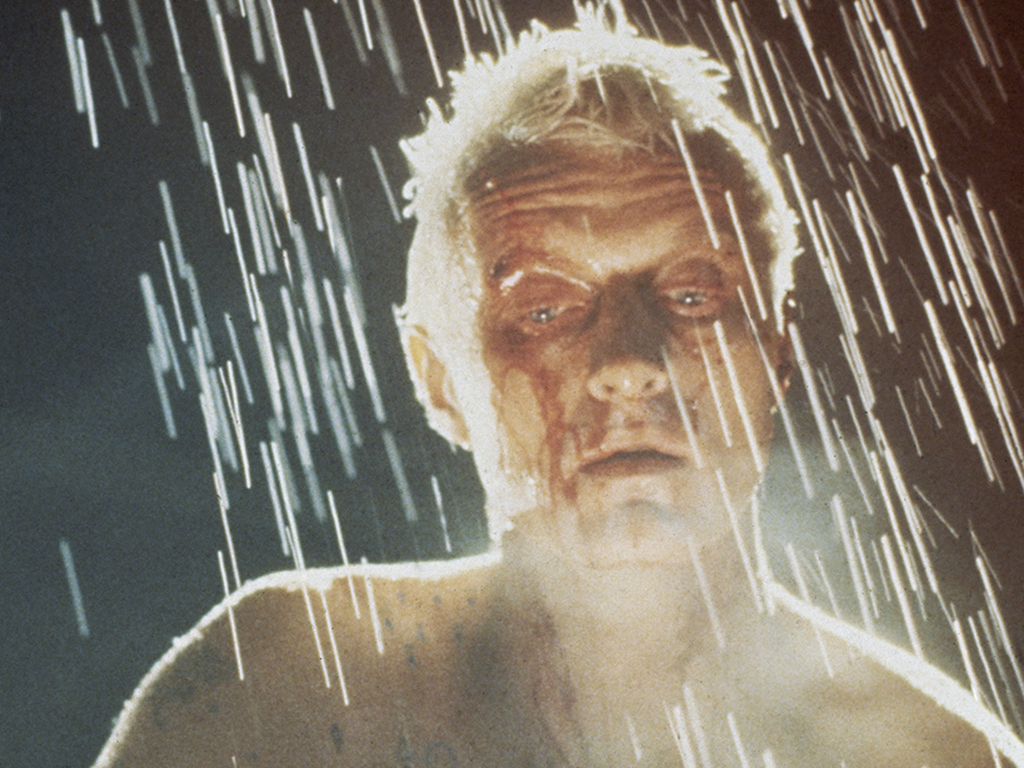Rutger Hauer, the iconic Dutch actor and writer, died on Friday. He was 75.

The entertainer was best known for his portrayal of Roy Batty, the ruthless android antagonist in the 1982 Ridley Scott-directed cult classic, Blade Runner — which was inspired by the 1968 Philip K. Dick novel, Do Androids Dream of Electric Sheep? and starred Harrison Ford.

Throughout his life and career, Hauer appeared in an abundance of films, including his role as a notorious terrorist in 1981’s Nighthawks opposite Sylvester Stallone, The Hitcher (1986) and Christopher Nolan‘s Batman Begins (2005) among many, many others.
Steve Kenis, Hauer’s longtime agent, confirmed the actor’s passing in a statement provided to the Associated Press. He died at his Beetsterzwaag, Netherlands home on Friday, July 19.
As reported by Variety, Hauer’s funeral was held on Wednesday morning. He reportedly passed away as a result of a brief illness.
READ MORE: Russian boxer Maxim Dadashev dies after sustaining brain injury in the ring
In Blade Runner, Batty — a wanted “replicant” fugitive with only a four-year lifespan — sets out on a quest to find a way to prolong the lives of he and his cohorts while simultaneously evading the threat of retired bounty hunter Rick Deckard (portrayed by Ford).
Though in his 2007 autobiography, All Those Moments: Stories of Heroes, Villains, Replicants, and Blade Runners, Hauer admitted that he “wasn’t that happy” with the final monologue Scott had written out for his character in the iconic science fiction film.
Hauer revealed that he condensed the speech from a whopping 30 lines down to the two that he though would be the most poetic.
WATCH: Rutger Hauer as Roy Batty in ‘Blade Runner’ during the infamous ‘Tears in Rain’ speech
Batty’s final line, however, read moments before his inevitable death (coincidentally set in 2019, as well), was written and improvised by Hauer himself: “All those moments will be lost in time, like tears in rain. Time to die.”
Accompanied by Vangelis’s awe-inspiring score, the monologue made it one of the most iconic sci-fi scenes in cinematic history.

Get breaking National news
Many have considered Roy Batty to be one of the greatest and most sinister onscreen villains of all time, thanks to Hauer’s overall performance in the film.
READ MORE: Vin Diesel stunt double severely injured on ‘Fast & Furious 9’ set, production halted
An outpouring of fans took to Twitter in response to the news, many sharing their memories and love for Hauer.
Among them was director Guillermo del Toro, Gene Simmons of KISS, and actor Vincent D’Onofrio (Full Metal Jacket, Jurassic Park) — who worked with the late actor in 1989’s The Blood of Heroes.
Here’s what some longtime fans had to say in wake of the news:
Hauer was set to attend Toronto’s annual Fan Expo convention this August, alongside former Blade Runner co-stars Sean Young (who plays Rachael) and Edward James Olmos.
While Hauer didn’t “see why the film was necessary,” Olmos reprised his role as Detective Gaff in Denis Villeneuve‘s Blade Runner 2049 (2017).
READ MORE: Nationwide manhunt ensues for 2 teens suspected in northern B.C. deaths
Hauer also won the award for ‘Best Supporting Actor’ at the Golden Globes in 1988 for his onscreen portrayal of Russian Lieutenant, Alexander ‘Sasha’ Pechersky.
He was born on Jan. 23, 1944 in the village of Breukelen, Netherlands. He was raised by mother and father, who were both acting teachers.
After a failed attempt at running away from home and trying his luck working at the sea at age 15, he returned home and enrolled in acting school.
Hauer made his film debut starring in 1973’s Turkish Delight, which was later nominated for the Oscar for ‘Best Foreign Language Film.’
Earlier in his career, a Hollywood agent suggested changing his name to something easier for the American public to learn. Hauer declined, saying, “If you’re good enough, people will remember your name.”
—
Hauer is survived by his wife of 50 years, Ineke ten Cate, and a daughter, actress Aysha Hauer, from a previous marriage.
— With files from the Associated Press






Comments
Want to discuss? Please read our Commenting Policy first.